Melanoma Schelhardt Lecture Morris D. Marcus lecture City-Wide Grand Rounds Resident Research Day Dermatology Grand Rounds
2024-2025: Dermatology Events


Melanoma Schelhardt Lecture Morris D. Marcus lecture City-Wide Grand Rounds Resident Research Day Dermatology Grand Rounds
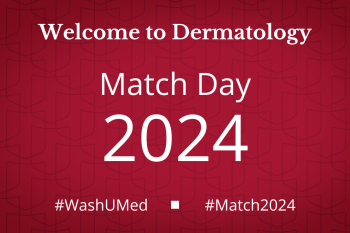
Congratulations to our newly matched Dermatology residents! Class of 2028

The award will be announced at the ASDS annual meeting next month.
The Division of Dermatology is proud to announce that nine of our faculty have been selected for the 2023 Castle Connolly Top Doctors® list. Find the full list of all WashU Physicians in the John T. Milliken Department of Medicine news release.
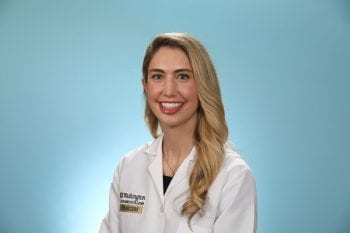
Hear from a Siteman Cancer Center dermatologist about types of skin cancer and the best approach to skin cancer prevention, including sunscreen recommendations.




Announcing the 2023 Research Award Recipients
The DF congratulates its 2023 research award recipients! The Foundation’s Medical and Scientific Committee reviewed many promising proposals and identified those which are most meritorious and impactful for the future of dermatology. We are pleased to support the work of these individuals

Dr. Felipe Almeida de Pinho Ribeiro’s first-authored paper “Bacteria hijack a meningeal neuroimmune axis to facilitate brain invasion“ was part of the article, “How Bacteria Invade the Brain“. Written by Ekaterina Pesheva and published in Harvard Medical School News & Research. “The meninges are the final tissue barrier before pathogens enter the brain, so we […]

Click to read Dr. Felipe Almeida de Pinho Ribeiro’s first-authored paper “Bacteria hijack a meningeal neuroimmune axis to facilitate brain invasion“ published in Nature – the leading international weekly journal of science. The meninges are densely innervated by nociceptive sensory neurons that mediate pain and headache. Bacterial meningitis causes life-threatening infections of the meninges and […]

Dr. Wang’s project looked at emergency department (ED) utilization in hidradenitis suppurativa (HS). Data was used from the IBM® MarketScan® Commercial and Multi-State Medicaid Databases to examine a population of over 20,000 individuals with HS who visited the emergency department for the disease and the factors associated with ED return and dermatology follow-up. Amongst other […]

In addition to a skin rash, many eczema sufferers also experience chronic itching, but sometimes that itching can become torturous. Worse, antihistamines — the standard treatment for itching and allergy — often don’t help.
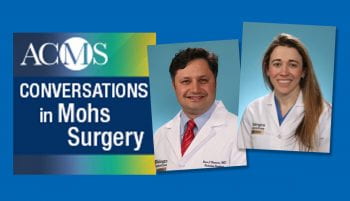
Dr. Kelly MacArthur was featured on a recent American College of Mohs Surgery podcast conversation with radiation oncologist Dr. Brian Baumann to discuss their paper, Management of Primary Skin Cancer during a Pandemic: Multidisciplinary Recommendations, which was recently published in Cancer, an American Cancer Society journal.
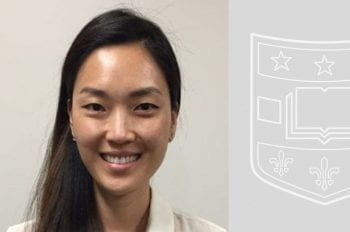
Esther Chung, MD, a dermatology resident, is among the many Washington University School of Medicine and Barnes-Jewish Hospital doctors who temporarily stopped seeing patients when their clinics were shuttered to prevent the spread of COVID-19. Sidelined by these closures, Dr. Chung wanted to help her colleagues serving on the frontline. By partnering with The Foundation for Barnes-Jewish Hospital, Dr. Chung was able to provide meals to hospital departments where they were needed the most.
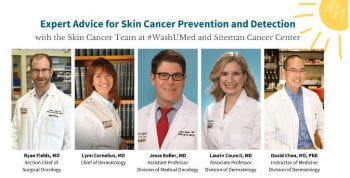
As the days grow warmer and brighter, outdoor activities like running, biking, swimming and yardwork all increase in popularity. These kinds of activities are an important part of our lives; outdoor exercise is beneficial to physical and mental health, and spending time in the sun also helps the body synthesize vitamin D.
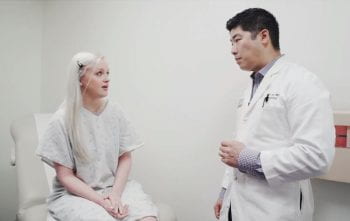
The aggravating skin condition eczema is most commonly treated by suppressing the immune system, but not all patients get relief. Now, a drug strategy aimed at revving up the immune system and boosting a type of immune cell known as natural killer cells appears, at least in mice, to effectively treat eczema.
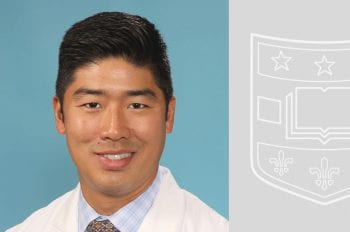
I have an occasional “phantom” itch in the middle of my back in a place I can’t reach. I use a long-handled comb to give it a good scratch. There’s no obvious cause — no rash, no irritation or redness, no diagnosed skin disorder. It’s annoying, but it doesn’t disrupt my life.
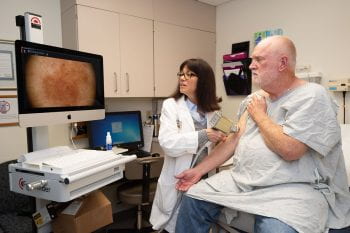
A combination of two topical creams already shown to clear precancerous skin lesions from sun-damaged skin also lowers the risk that patients will later develop squamous cell carcinoma of the skin.
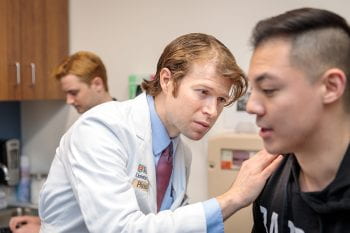
Isotretinoin, a form of vitamin A, has been prescribed to treat acne for decades. It reduces oil production in the skin, which helps prevent acne from forming.
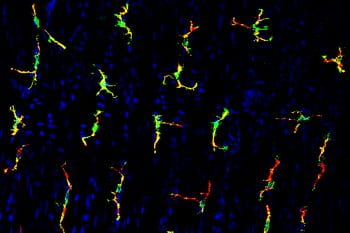
Washington University researchers have found that immune cells called macrophages can trigger smooth muscle contractions in the intestinal tract, independent of nerve cells. The research in mice suggests that targeting a receptor (green) on macrophages (red) holds potential for treating chemotherapy-induced diarrhea.

Washington University School of Medicine in St. Louis is joining with Sun Pharma Advanced Research Co. (SPARC) to support new drug development through the university’s Center for Drug Discovery and the Skandalaris Center for Interdisciplinary Innovation and Entrepreneurship.
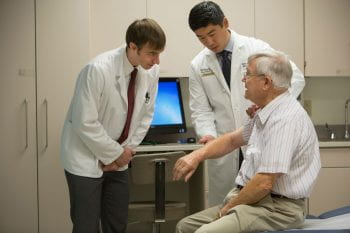
The roots of chronic itching have long remained a mystery. Meanwhile, those with the condition suffer from an unrelenting and sometimes debilitating urge to scratch. Now, new research at Washington University School of Medicine in St. Louis has identified immune signaling molecules that are essential for activating neurons in the skin to cause chronic itching.

The realization that it can be difficult for LGBTQ faculty, staff and students to connect, develop networking relationships and find mentors helped lead to the creation of OUTmed at the School of Medicine.

A combination of two topical drugs that have been in use for years triggers a robust immune response against precancerous skin lesions, according to a new study. The research, from Washington University School of Medicine in St. Louis and Harvard Medical School, shows that the therapy activates the immune system’s T cells, which then attack […]
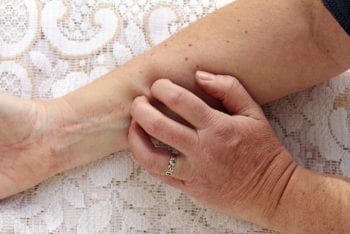
In a small study of patients who have chronic itching with no known cause, researchers from the Center for the Study of Itch at Washington University School of Medicine in St. Louis identified immune system irregularities that may prompt the urge to scratch.
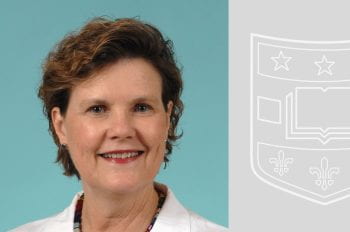
Director of pediatric dermatology dedicated to helping children at home and abroad